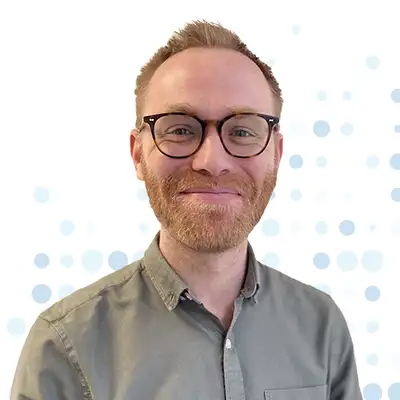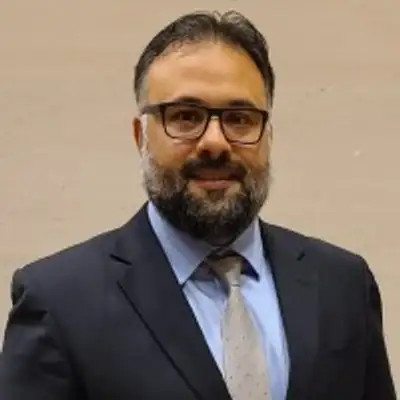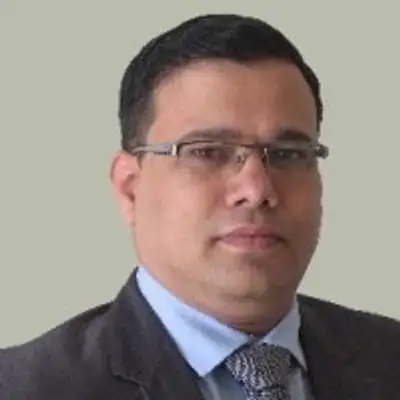This episode explores the concept of human autonomy at Honeywell and how it contributes to faster problem-solving with enhanced data and predictions. We also discuss the vital importance of industry partnerships.
Download Honeywell's recent webinar with Borealis, 'Q&A: Transforming process optimisation: leveraging AI, cloud & digital twins with Honeywell and Borealis', here: www.hydrocarbonengineering.com/webinars/honeywell-process-solutions/qa-transforming-process-optimisation-leveraging-ai-cloud-digital-twins-with-honeywell-and-borealis/
This episode of the Hydrocarbon Engineering Podcast is sponsored by Owens Corning FOAMGLAS® cellular glass insulation — an impermeable insulation trusted in high-performing hydrocarbon processing facilities around the globe. Learn more at https://www.owenscorning.com/en-us/insulation/foamglas
Creators and Guests

What is Hydrocarbon Engineering Podcast?
The Hydrocarbon Engineering podcast: a podcast series for professionals in the downstream refining, petrochemical and gas processing industries.
Hello, everyone, and thanks for joining us for another episode of the Hydrocarbon Engineering Podcast. Today, I am joined by Omar Sayeed, center of excellence leader for reliability at Honeywell Process Solutions and his colleague, Rahul Negi, director of AI and industrial autonomous for a discussion about how new innovative technology can help to overcome some of the challenges facing the downstream oil and gas sector. We're going to be exploring the concept of human autonomy at Honeywell and how it contributes to faster problem solving with enhanced data and predictions, and we'll also consider the vital importance of industry partnerships. So let's talk to Omar and Rahul.
Advert:The Hydrocarbon Engineering Podcast is brought to you by Owens Corning Foam Glass Insulation. From managing vapor drive and mitigating corrosion risk to maintaining thermal performance and supporting safety on the jobsite, the insulating system plays a critical role in high performing hydrocarbon processing facilities. Learn more about how foam glass insulation contributes to the design of high performing insulating systems at cryogenic facilities at ww.bowenscorning.com/foamglasslngstudy. That's www.owenscorning.comf0amglaflngstudy.
Callum O'Reilly:So welcome Omar and Rahul. How are you both today?
Omar Sayeed:Great. Thanks, Callum.
Callum O'Reilly:Thank you, Callum. So before we get started, please could you both introduce yourself to our listeners and tell us a little bit about your current roles at Honeywell Process Solutions?
Rahul Negi:Hi, everyone. My name is Rahul Negi. I lead the industrial autonomous and the artificial intelligence solutions for Honeywell Process Solutions. I have been in Honeywell for fourteen years, and I'm based out of Houston.
Omar Sayeed:Omar Sayeed, I lead the center of excellence for asset reliability in Honeywell Process Solutions. I'm based in Atlanta, Georgia. Been working at Honeywell in different roles for over twenty years.
Callum O'Reilly:Great. Thank you both for that. So as I mentioned in my introduction, I want to take a closer look at some of the challenges that are currently facing the industry. Rahul and Omar, perhaps you could both give us your thoughts on this and how these challenges impact operations.
Rahul Negi:Yep. So I'll go first on this. The challenges which process industry is facing is the loss of skilled operators. And due to this, they are not able to maintain the peak performance of their plants and their assets. And this skill problem is actually becoming more and more after the COVID and the great resignation, and they are losing operators who had twenty years, thirty years of experience, and they are retiring, taking all the knowledge out with them, and the new operators who are joining are having a very steep learning curve.
Rahul Negi:So this is one primary challenge which affects operations, safety, and other aspects of a plant because the operators are very new and they have a very steep learning curve.
Omar Sayeed:I think on the asset reliability side, unplanned downtime is still a concern for many operators impacting the throughput basically leading to gaps and meeting production plan. Other challenges we find our customers face is around optimizing maintenance costs over a period of time. There's a squeeze put on the maintenance budgets. And that's a response to rising sizing, resizing the feedstocks, chemicals and utility costs. I think for many parts of the world, the infrastructure is aging and the assets themselves are more prone to break down and the capital replacements costs are higher.
Callum O'Reilly:So how do you envision the industry adopting new technologies to overcome some of these challenges?
Rahul Negi:One of the key technologies which we are looking at is adopting is artificial intelligence. For last two to three years, generative AI has become a common household name. Even in the process industry, we are trying to use a combination of probabilistic AI, which is generative AI, and deterministic AI, which is rule based, physics based engine to solve the problems for it. A combination of these two artificial intelligence models will actually help solve the industry problem because these are very critical assets. And then using technologies like knowledge graph, language models, to build into solutions which can enable a human and machine teaming.
Rahul Negi:So a human autonomy teaming is what Honeywell is looking for, where the machine helps the human take better decisions, be more much more aware, and do higher level of work.
Callum O'Reilly:So are you able to provide any specific use cases? So for instance, we recently hosted a webinar between Honeywell and Borealis that considered how leveraging emerging technologies such as AI and the cloud and digital twins can transform process operations. So are you able to expand upon this particular case study or provide any other examples?
Omar Sayeed:Sure, Callum. Borealis has been a long customer of Honeywell's. Basically they were seeking to expand their investments in new technology and digitalization to improve processing capabilities and efficiency. In the past, they had been a customer for our operator training simulator, which uses high fidelity simulation models to improve things like DCS checkout and help you get a plant started faster. So they had a vision to see how they could better leverage the domain knowledge that's embedded in these advanced high fidelity physics based models to drive better operational efficiency online and in near real time.
Omar Sayeed:So we collaborated with Borealis to give them a use case around advanced sensing on polymer production units, giving engineers better insights into what's the polymer grade and how the unit is operating so that they could improve efficiencies and respond to upsets faster.
Callum O'Reilly:Are you able to elaborate on the concept of human autonomy at Honeywell and how it contributes to faster problem solving with enhanced data and predictions? And what skills are essential for this approach?
Rahul Negi:Yeah. So I'll take that. The human autonomy teaming, let me provide you with an example of it. Right? So what we are doing is we are building the AI technologies and infusing AI into our main platform, which is the Experian Process Knowledge System, and one of the applications which we have come out with is a real time alarm assistant for operators.
Rahul Negi:So an alarm assistant looks at all the historical data and it contextualizes the alarm with all the relevant information and provides how to solve or resolve that alarm to an operator in real time. It brings in all the different data sets, which is the real time data, the relevant SOPs, data points, measurements, and gives an operator an entire view in seconds, and this is which actually helps him to run the plant smoothly and this was what we say makes an operator the best operator. Now all operators, irrespective of their experience, are handling the alarm in the same way and in the same time limit. So this is one example. The other example of human autonomy teaming is we are using predictive AI and ML models to actually predict critical system failures or critical events which will occur, giving enough time for operators and supervisors to take action so that they can continue their operations and keep the business continuity.
Rahul Negi:So this will enable less failures of process, and they will be able to run an optimized plant for a longer duration of time.
Callum O'Reilly:So I was wondering how Honeywell differs from a technology standpoint.
Rahul Negi:So in terms of technology, we are using our years of our operational technology knowledge, the domain knowledge which we have, and we are embedding that in the artificial intelligence systems by developing knowledge graphs, generative AI models, which actually capture the essence of the plant or the unit which is operating. And we are doing it at the OT level and this is bringing in new capabilities like our alarm assistant or you can develop persona based assistant for supervisors, process engineers, and then we are also working on AI agents which can help automate the workflows and tasks of these individuals. So this is how combining years of domain knowledge and expertise into with the AI technology to actually enable the operators to do work faster, become more accurate, and take away the repetitive dull and dangerous task from them and give it to an AI assistant.
Omar Sayeed:I think to add to what Rahul said, as far as embedding domain expertise, we feel that a hybrid approach is the best approach combining both data driven along with the physics based and heuristic models that will give solutions which are explainable. Our customers like to know what the AI is doing. And I think Honeywell's in a great position to do that with our expertise and process controls, and equipment know how with different businesses and gas processing, LNG and petrochemicals, which can help differentiate us in the marketplace. I think another area where customers appreciate Honeywell's differentiation is around interoperability. We see customers demanding a consistent user interface and experience.
Omar Sayeed:And we also understand that we may not solve all of the industrial challenges. So being able to work with other partners in this space means thinking about an API first approach, for example, identifying synergies with other best in class technology and working with the partners to co create solutions. A good example is Honeywell Forge, our industrial software platform, which allows us to bring together different solutions and still deliver consistency in common user experience.
Callum O'Reilly:So, Omar, you talked about partnerships there, and that's something, like, I'd like to expand upon slightly. I was wondering how Honeywell can bring together an ecosystem of partners.
Rahul Negi:So on ecosystem of partners, Callum, it is very important to understand that the challenges which the industry is facing today cannot be solved by one individual company or with one or two individual applications. The challenges are need an ecosystem which is going to work right from the customer or the user who is a very important contributor in solving this problem, then we are working with technology partners like Microsoft and Google on artificial intelligence. We are using their platforms, as well as we are working with some niche partners like Omar mentioned to develop new applications and tie in our applications with them.
Callum O'Reilly:So for those of our listeners who are wondering how to implement these solutions that we've been talking about, where do you recommend starting?
Omar Sayeed:Talk to your Honeywell account Focal. We operate in a lot of the world's geographies, but apart from that we offer consulting services to help customers on their digital transformation journey And that starts with aligning and understanding customer challenges and how they can be solved in a holistic manner. We have a lot of industry events. We have our own user group in a couple of weeks, which is a great forum to hear from Honeywell experts and see some of our solutions in action on the demo floor. We're also present in a lot of industry forums like turbo machinery controls, gas tech, reliability web, ARC, and many other conferences.
Omar Sayeed:That's where we like to showcase our expertise and we'd love to get in touch with customers and see you out there.
Callum O'Reilly:So a final question from me today, Oman Rahul, and I wanted to look ahead slightly and ask what you foresee as the future of intelligence operations And how do you believe organizations will adapt?
Rahul Negi:I think that is looking like in a crystal ball, right? We have companies and assets which are twenty years and thirty years old, and processes which are pretty old. But I think this industry of process solutions is firmly on moving towards digitalization, intelligent operations, and becoming autonomous. Certain aspects of a workflow and processes will be automated using artificial intelligence and future technologies in future, and you'll see autonomous operations being a key part as a company moves ahead. But it will not be everywhere, so we will see supervisors, managers, everyone will have to adapt to this new way of controlling and operating a plant, visualizing a plant, its APIs, and then taking actions with help of assistants, chatbots, AI agents doing some part of the work.
Rahul Negi:And this change management will be key in next three to five years to be successful in this journey of digitalization and towards autonomous.
Omar Sayeed:Yeah, I think maybe to add to that, we'd see continued drive for open solutions and ecosystems, but I think customers are going to expect to see the embedded knowledge and domain expertise. I think in the future deployments are going to be, first of all, value first. I think there's been a lot of challenges with customers getting stuck in POC purgatory. So I think value first will be an important driver. And then secondly, having time to value, making sure solutions can get delivered in a timely manner and having the knowledge pre built in them.
Omar Sayeed:I think the other thing will be about having end to end support right from the inception and the life cycle management of the solutions to ensure that customers can continue to get the value in a sustained manner.
Callum O'Reilly:Great. Thank you so much Omar and Raul, for taking the time to explore this really fascinating area of the industry with us. Really exciting time for this particular sector, so we really appreciate your expertise on this. Thank you.
Rahul Negi:Thank you, Callum. Thank you .
Callum O'Reilly:Thanks, Callum. So as Omar mentioned during our discussion, we recently hosted a really interesting webinar exploring how Borealis has partnered with Honeywell to transform real time optimization by deploying Honeywell Process Digital Twin. The webinar considered best practices, emerging technologies and use cases to help achieve a step change in process optimization. Now I am pleased to say that this webinar is available to view on demand from our website, so please feel free to visit hydrocarbonengineering.com/webinars, click on the webinar titled Q and A Transforming Process Optimization Leveraging AI, Cloud and Digital Twins with Honeywell and Borealis and follow the simple on screen instructions to download your free copy of the webinar. My thanks again to Omar and Rahul and thank you to everyone for listening.
Callum O'Reilly:We'll be back soon with more conversations with thought leaders in the downstream sector, But in the meantime, please like and subscribe and share this episode with colleagues and friends.
Advert:The Hydrocarbon Engineering Podcast is brought to you by Owens Corning Foam Glass Insulation. From managing vapour drive and mitigating corrosion risk to maintaining thermal performance and supporting safety on the jobsite, the insulating system plays a critical role in high performing hydrocarbon processing facilities. Learn more about how foam glass insulation contributes to the design of highperforming.com/foamglaflngstudy.

